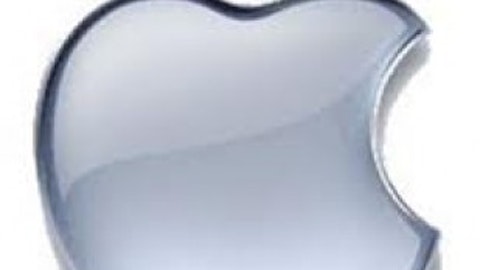Years from now, when fiscal forensics experts begin analyzing the chalked outline of Best Buy Co., Inc. (NYSE:BBY)‘s remains, it’ll be easy to see fingers pointing at Cupertino.
“Apple did it,” the masses will accuse. It was Colonel Cook in the Library with the iPad!
But that’s not entirely fair. Apple Inc. (NASDAQ:AAPL) definitely played a part in the demise of consumer-electronics retailing, but dusting the scene will uncover more than just the tech giant’s fingerprints.

I covered the upgrade earlier, and while I raised my doubts about the call, I didn’t mention the biggest reason for Best Buy’s grim fate, regardless of what happens to Apple Inc. (NASDAQ:AAPL).
The great digital divide
Is Chukumba right that the success of the Apple Inc. (NASDAQ:AAPL) Store will eat into traditional catch-all superstores? Yes. Is he spot-on in assuming that chunkier margins are to be had for retailers as Android gains market share? Absolutely.
However, none of this means Best Buy will be around in five or 10 years.
Amazon.com, Inc. (NASDAQ:AMZN) may have exposed Best Buy’s prices as too high, but it’s not even the showrooming trend that will be the cause of death when the fiscal crime lab is through with this one. No, the biggest reason for Best Buy’s fading relevance is that media distribution has gone digital.
It’s not that Apple Inc. (NASDAQ:AAPL) Stores are cooler. It’s not that Amazon and other online retailers have the infrastructures in place to deliver lower prices than a physical storefront. Folks are just simply consuming video, music, and software directly into their devices, and that means that it will be curtains for Best Buy’s CDs, DVDs, video games, books, and software.
Toxic sticker shock
These may be low-ticket items, but they’re the reasons folks went to Best Buy more than just once or twice a year. Buy a fridge, and ideally you won’t need one for another decade. Your TV or digital camera may not hold off their obsolescence as long, but you should still be good for a few years.
Media, though, lives on a different cycle of repeat purchases. Buy the new Lumineers CD, and you could still go back to Best Buy the following week to pick up Ted on Blu-ray. Buy the new George Sauders book, and you may still find your way back to the store to get Dead Space 3 when the video game hits the market on Tuesday.
Sure, you could. But we’re cutting out the retail middleman these days. Zapping physical media into cyberspace is the reason store traffic is on a downward spiral at Best Buy.
It’s true that Apple was the kingpin of this revolution. The iPod crushed CD sales, and it’s not a coincidence that video game and movie sales began to falter when the iPhone and iPad were introduced. But the trend would continue even if Apple keeled over tomorrow. Android — and whatever platform rises next — will simply keep repeat customers away.
Do you really think that there’s any turning back now?
You can blow down a house of bricks …
Some models may crumble sooner than others.
GameStop Corp. (NYSE:GME) has revised its comps guidance lower four times over the past year as the push to digital dries up demand for its games and the supply of the used physical games that it dresses up for resale at chunky margins. Barnes & Noble, Inc. (NYSE:BKS) has already announced that it will follow Blockbuster in closing far more stores in the near future than it would dare to open.





